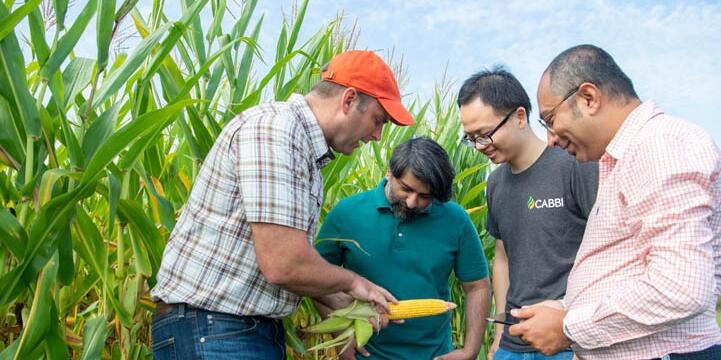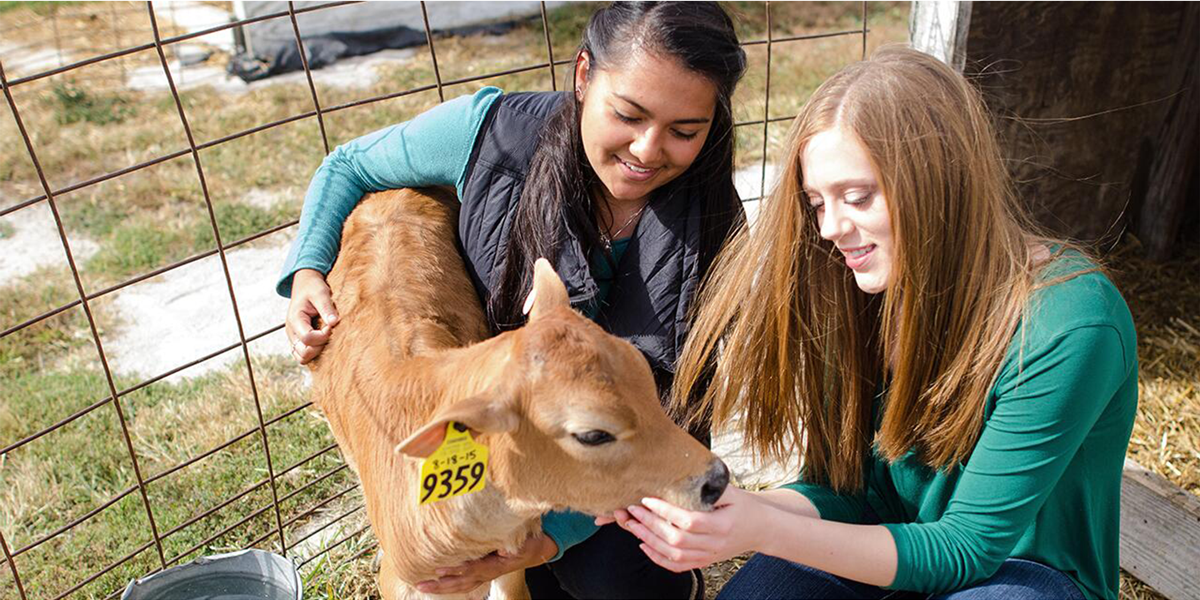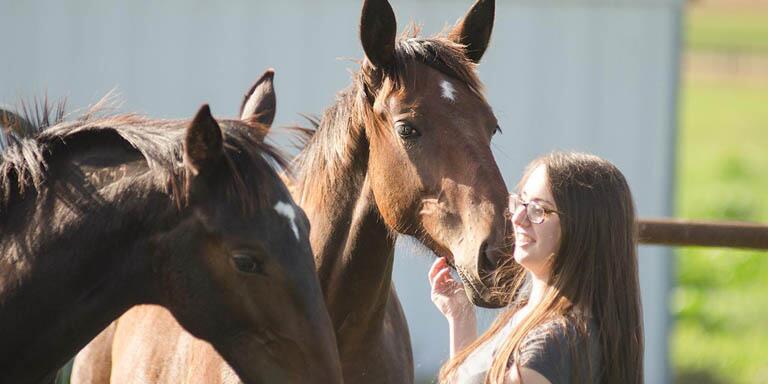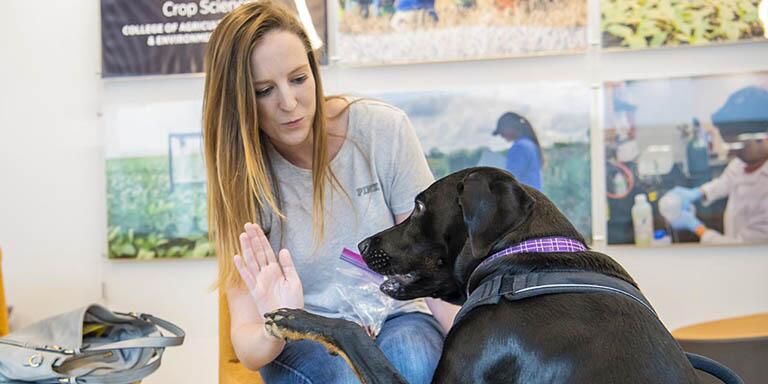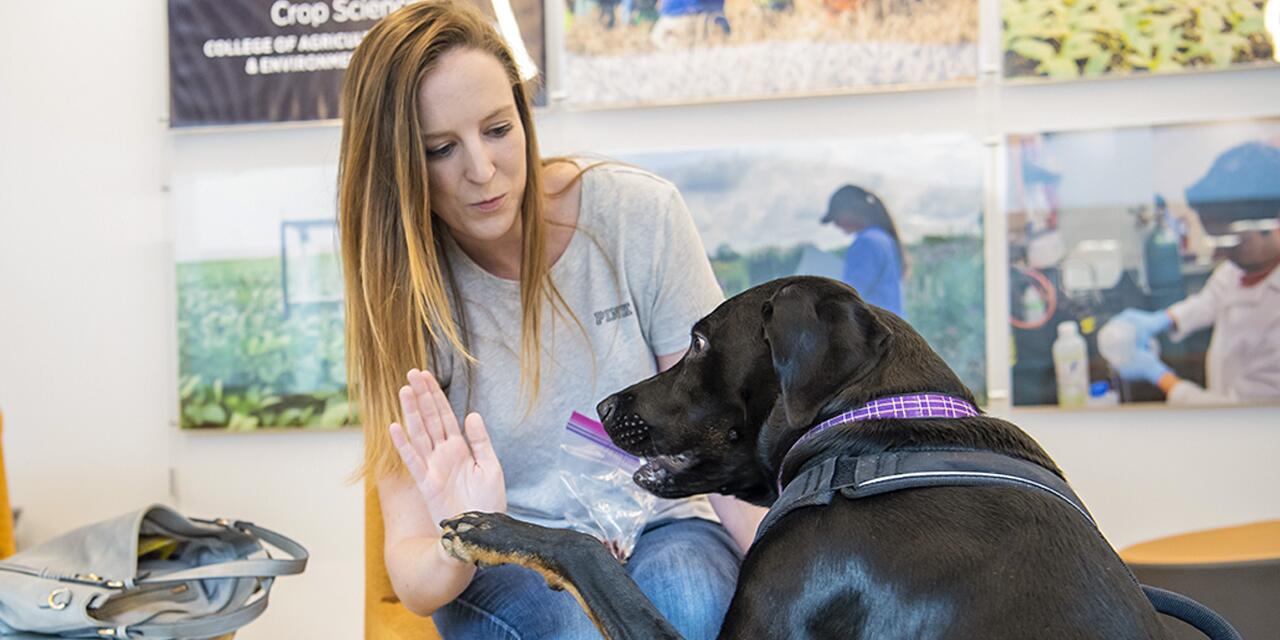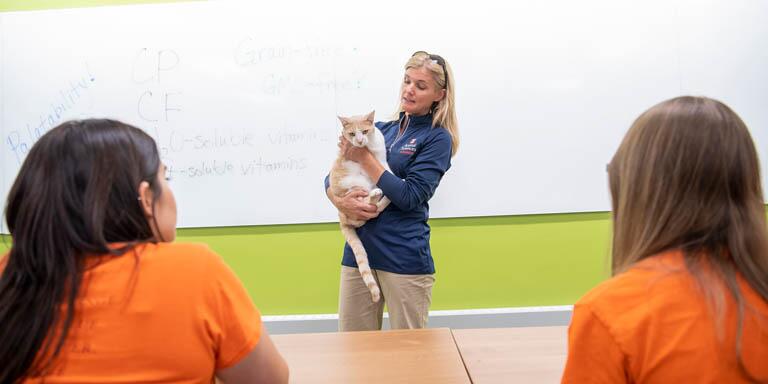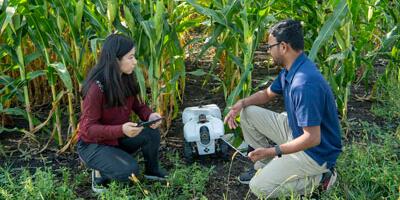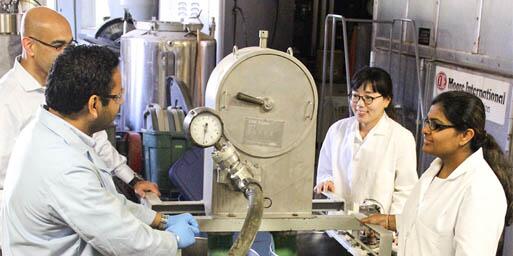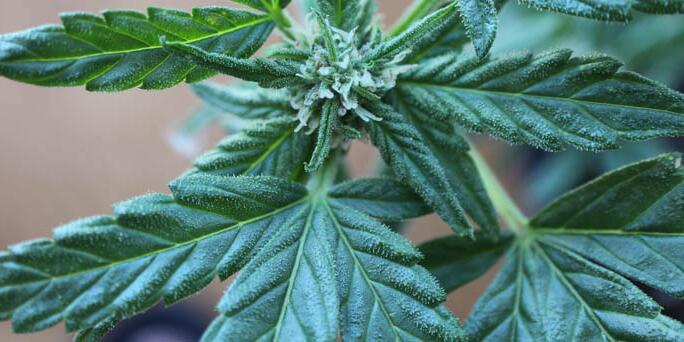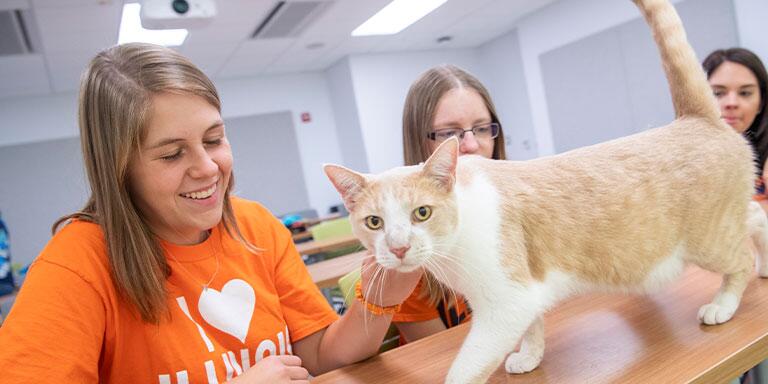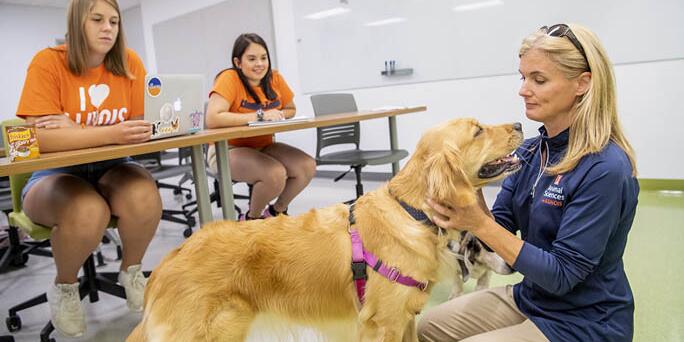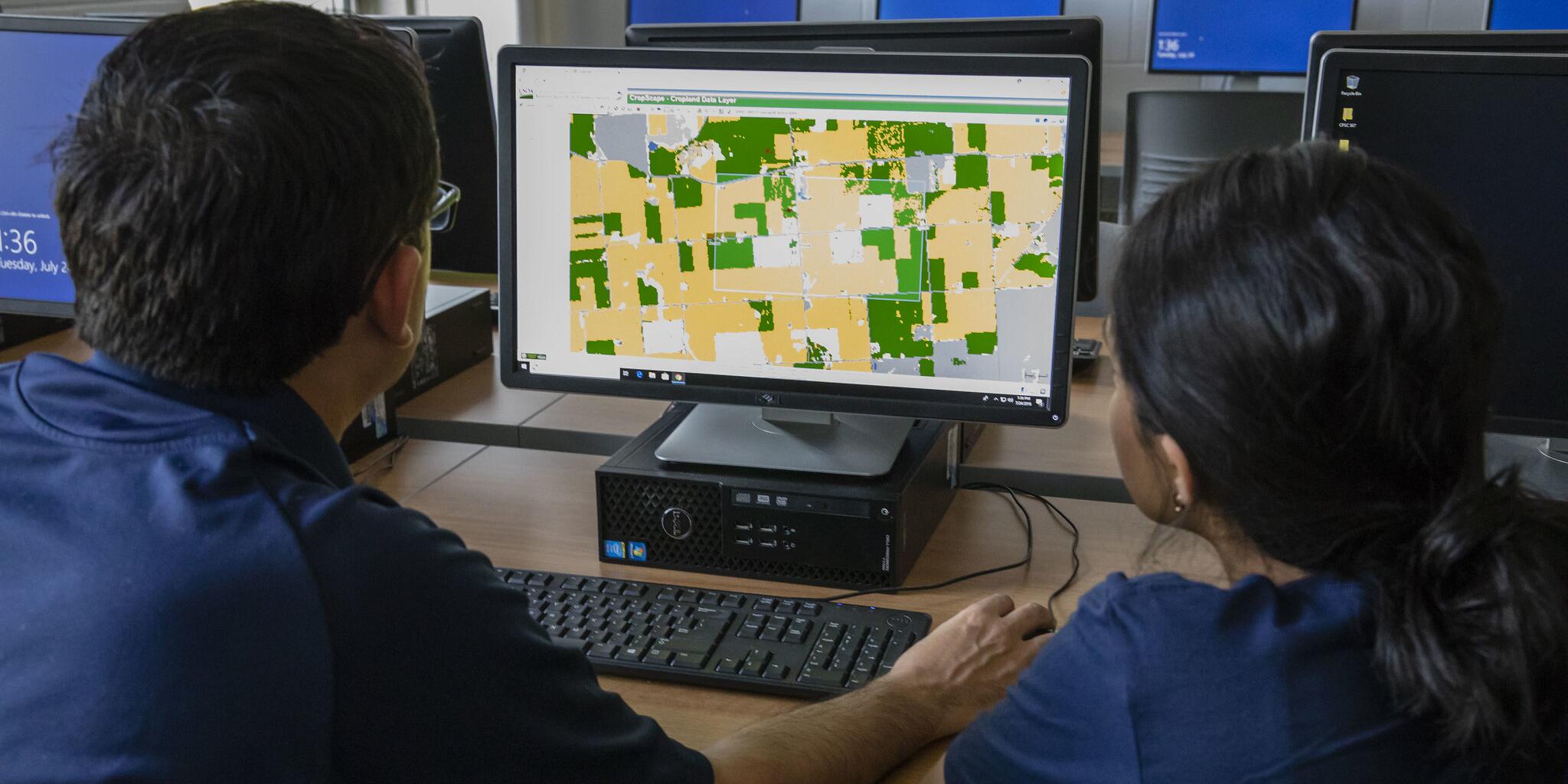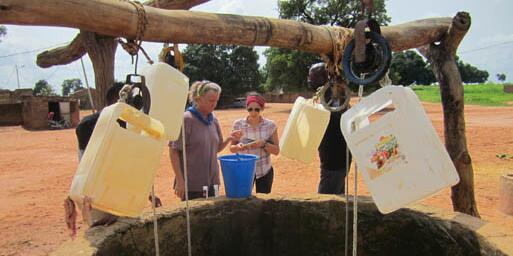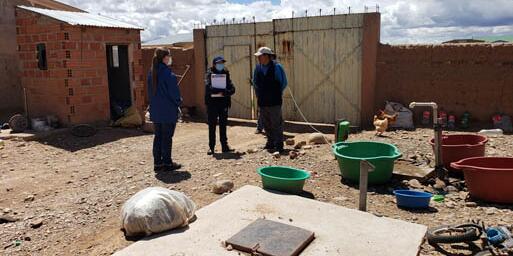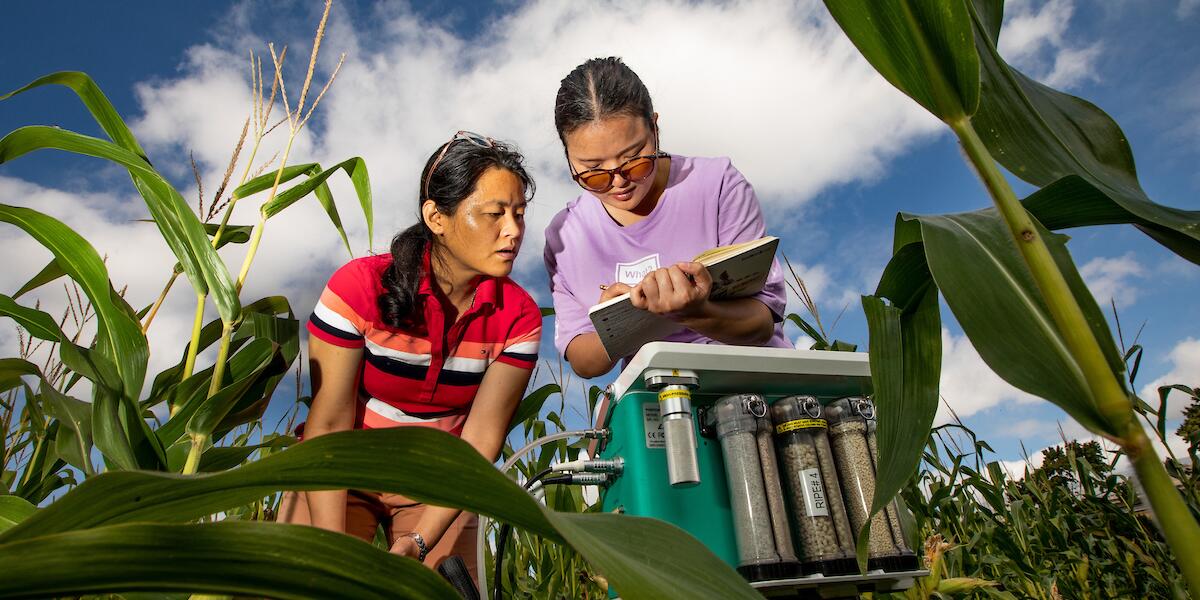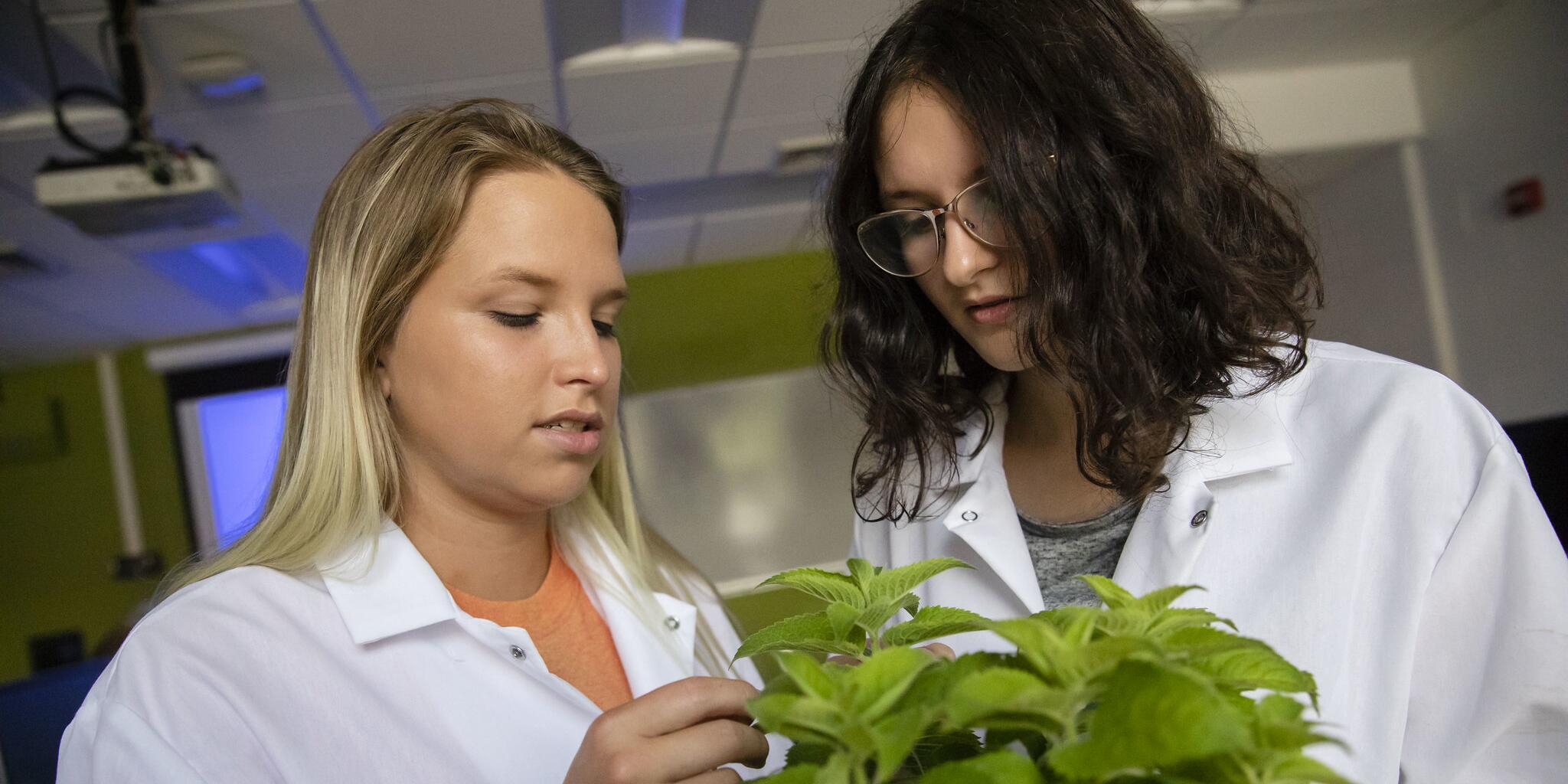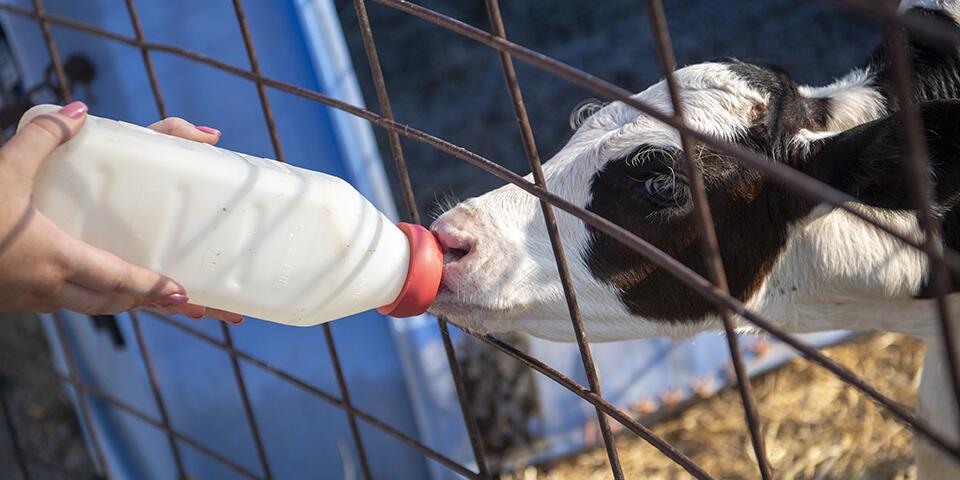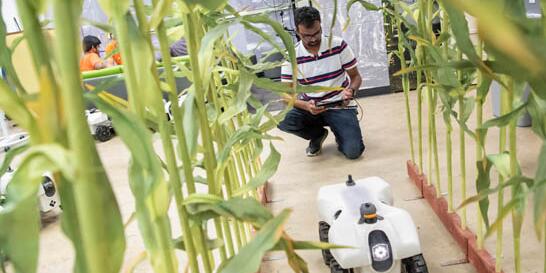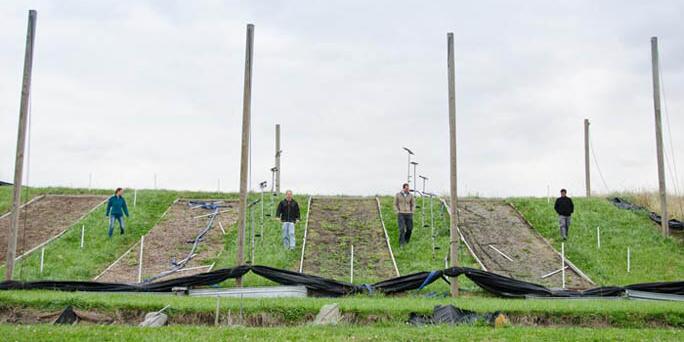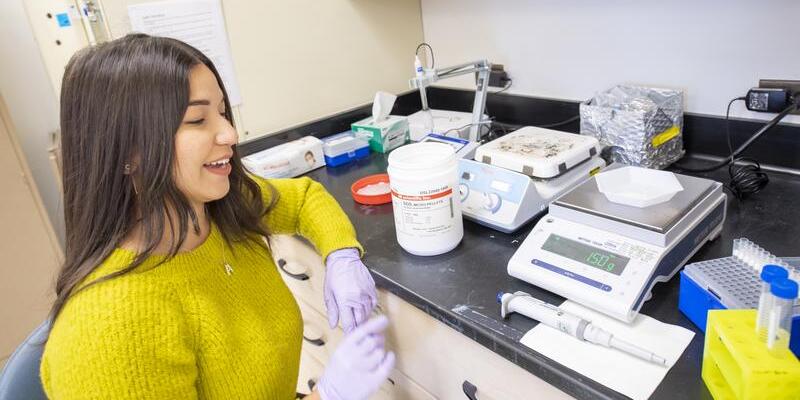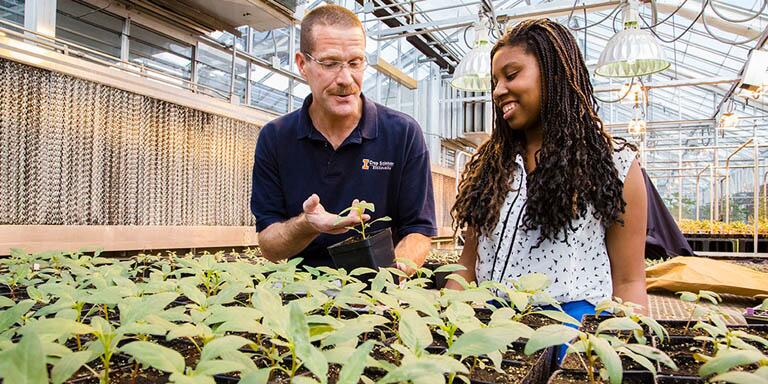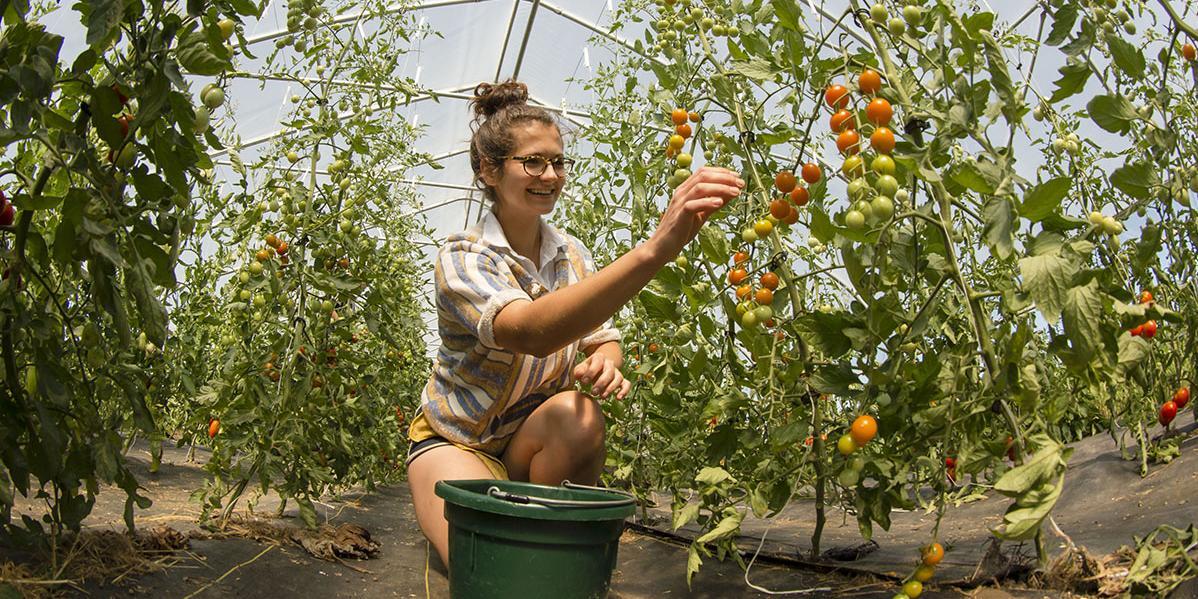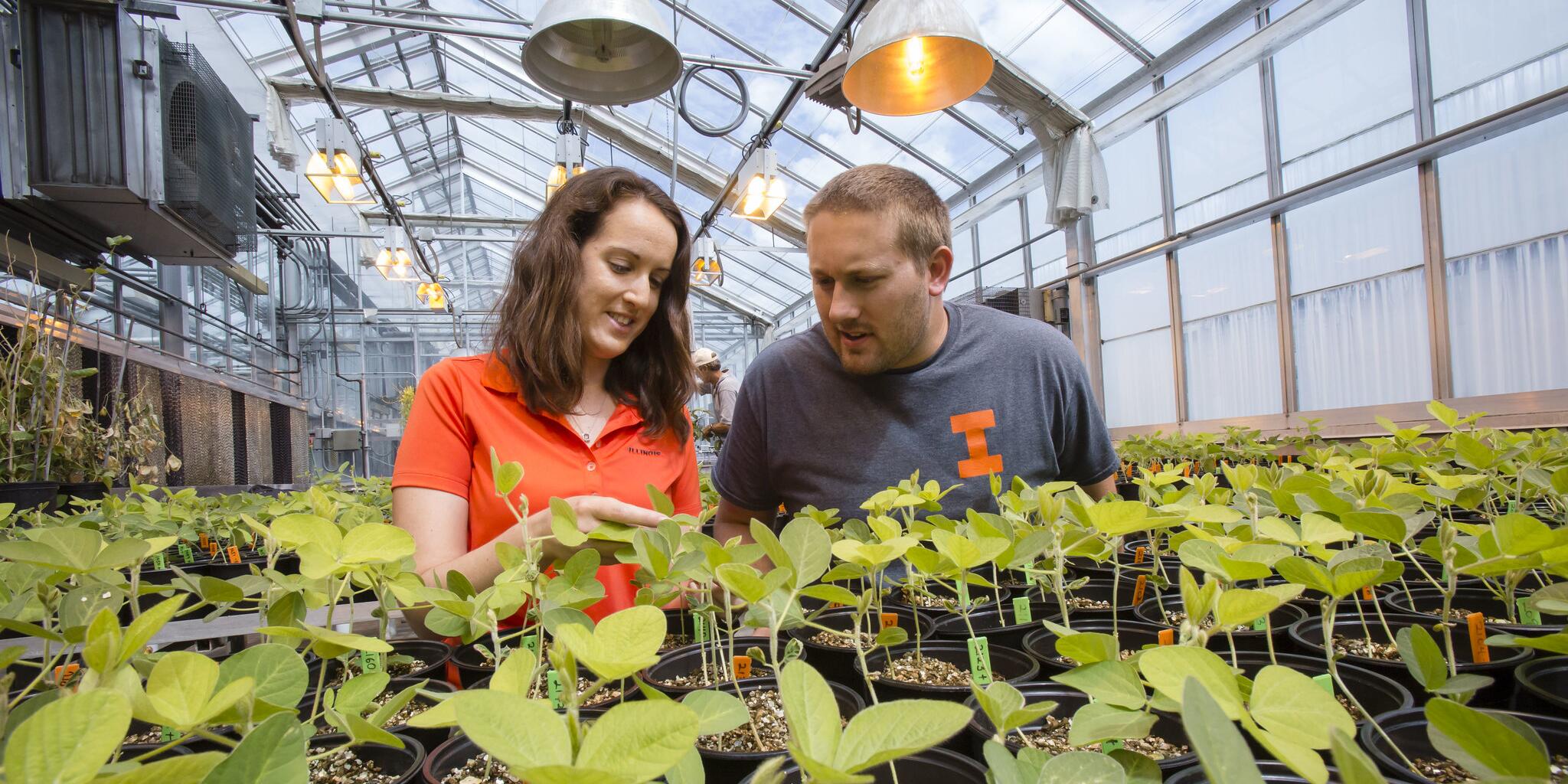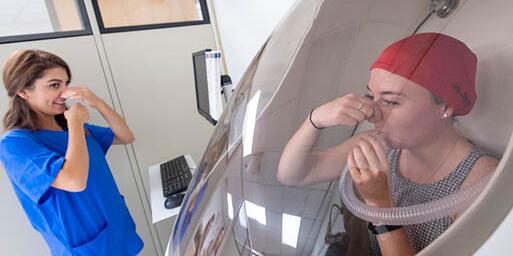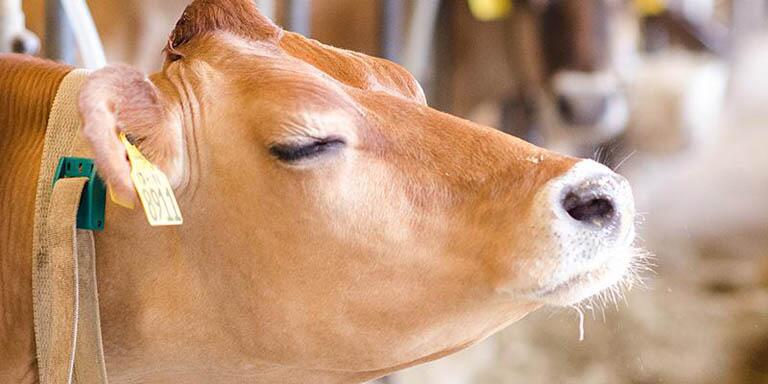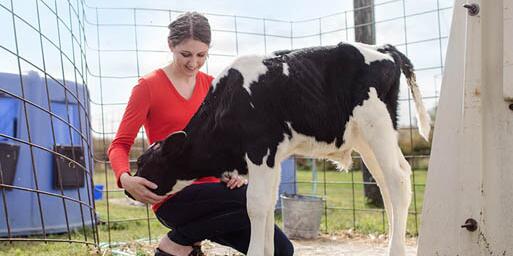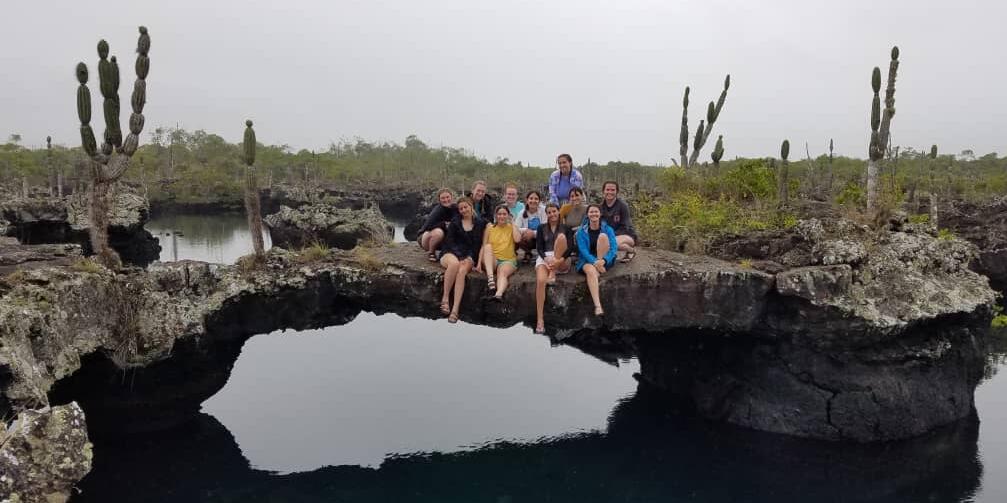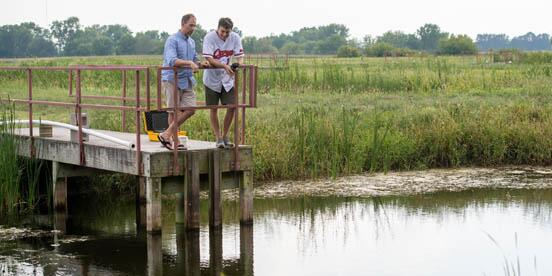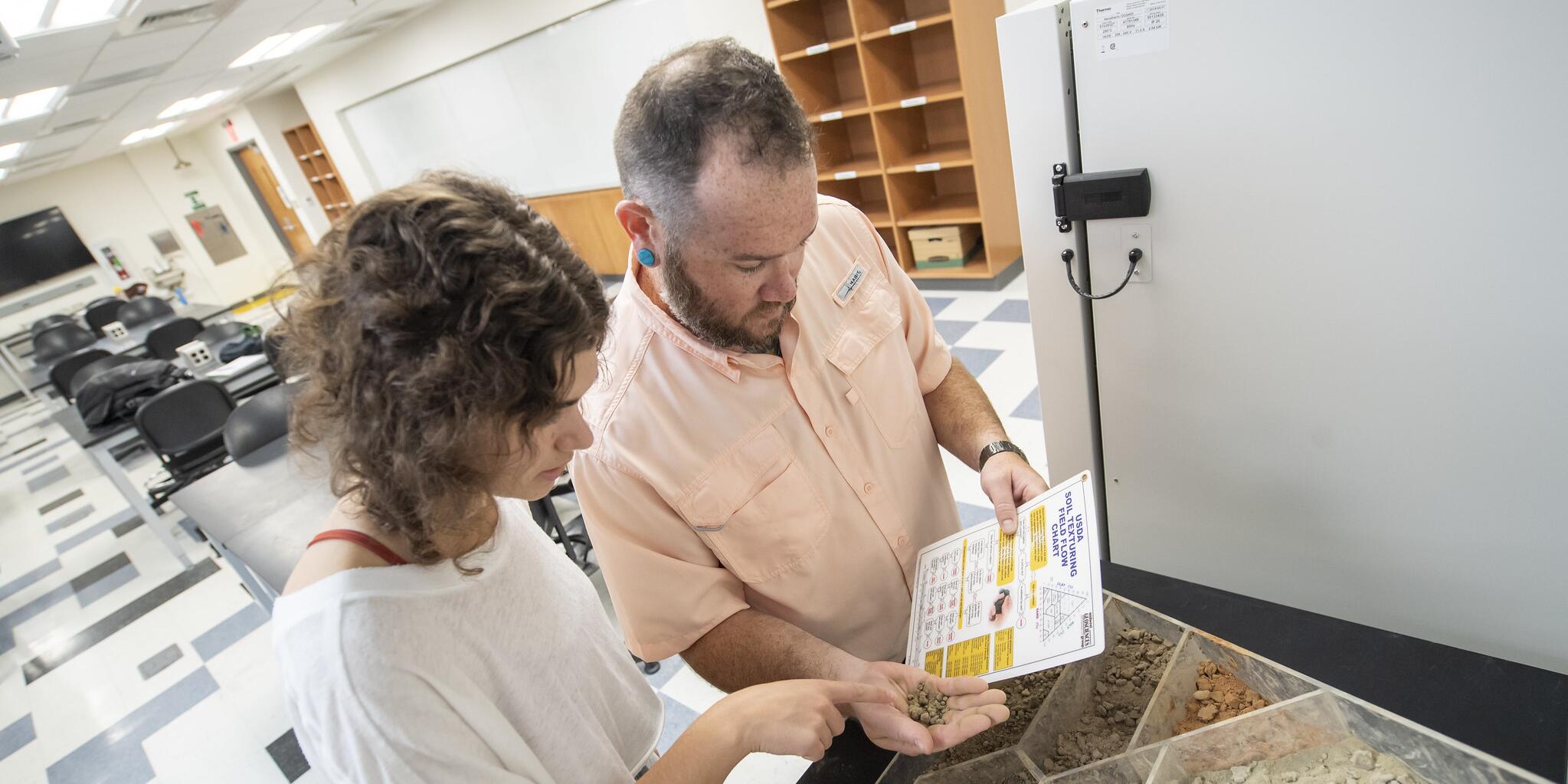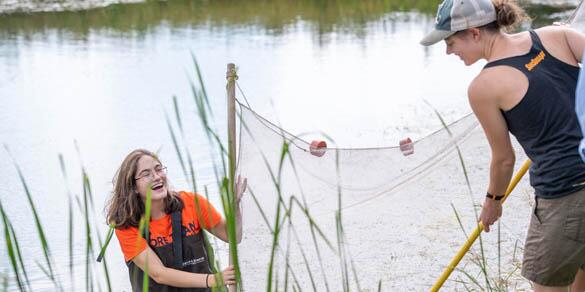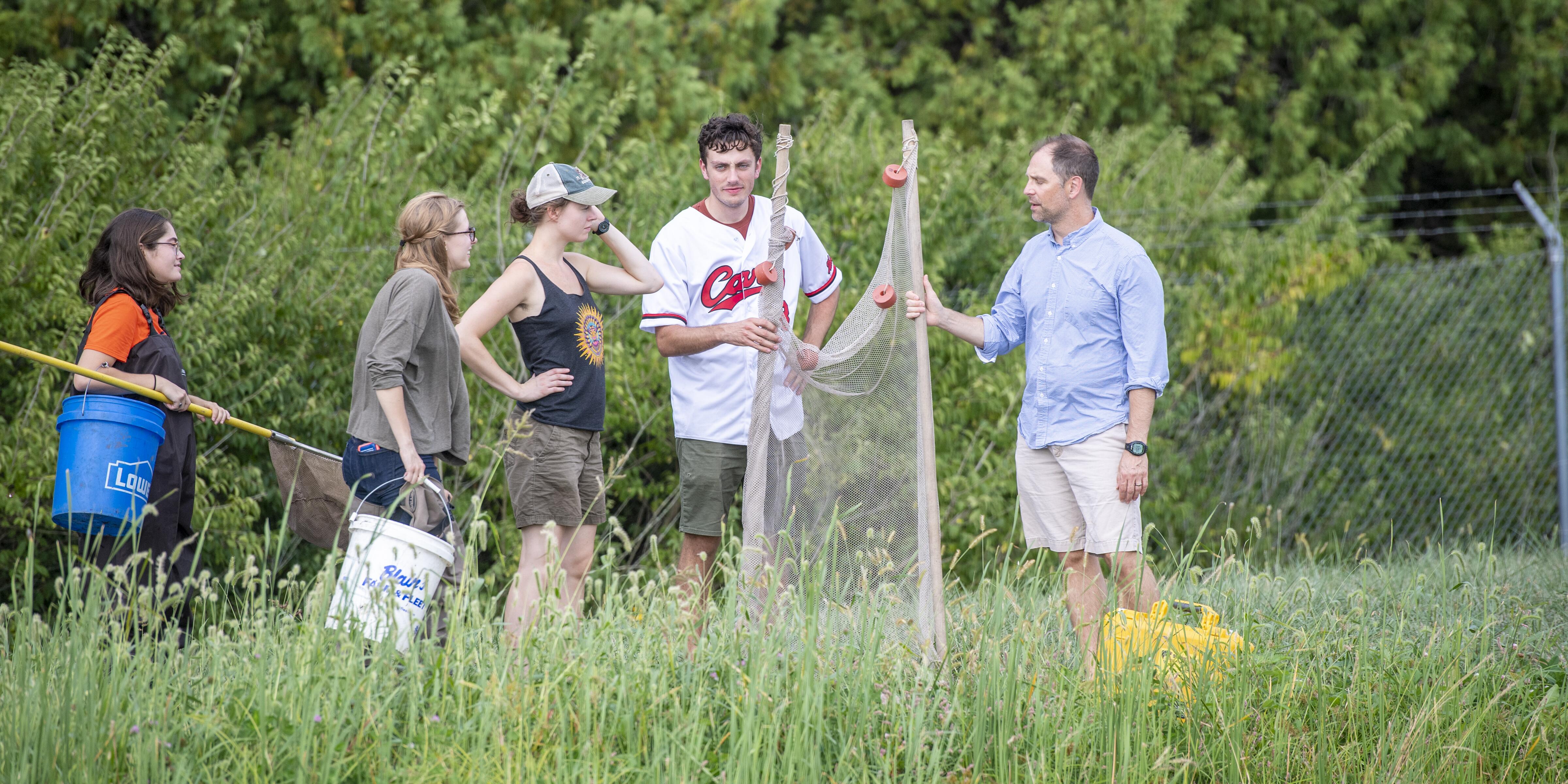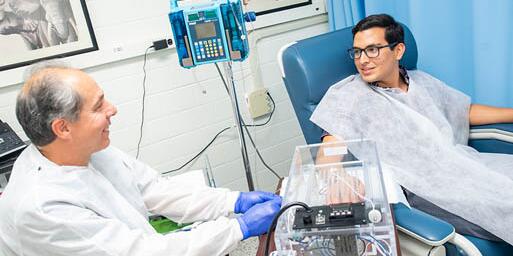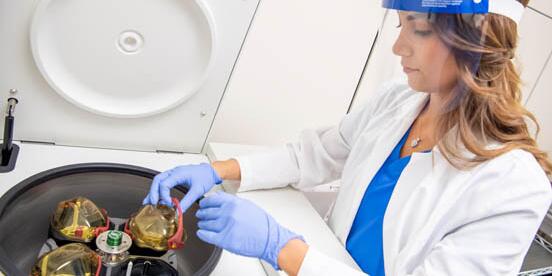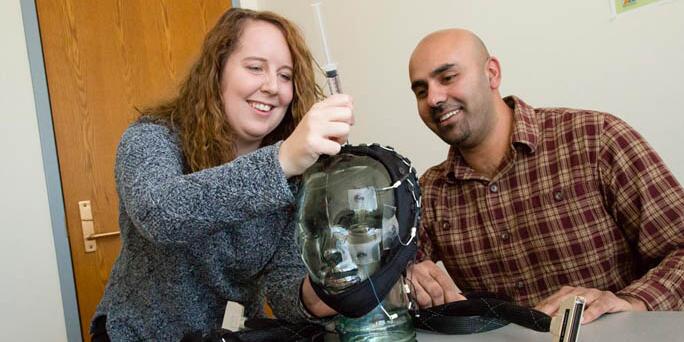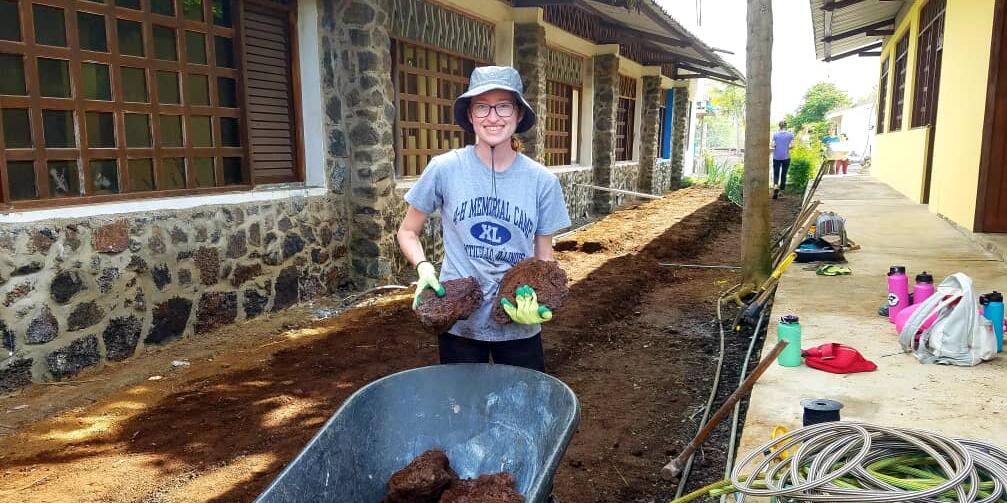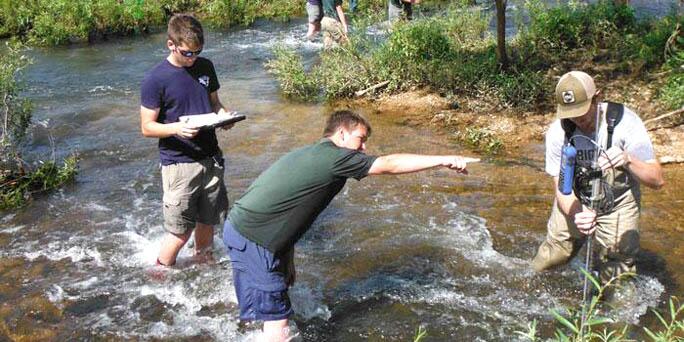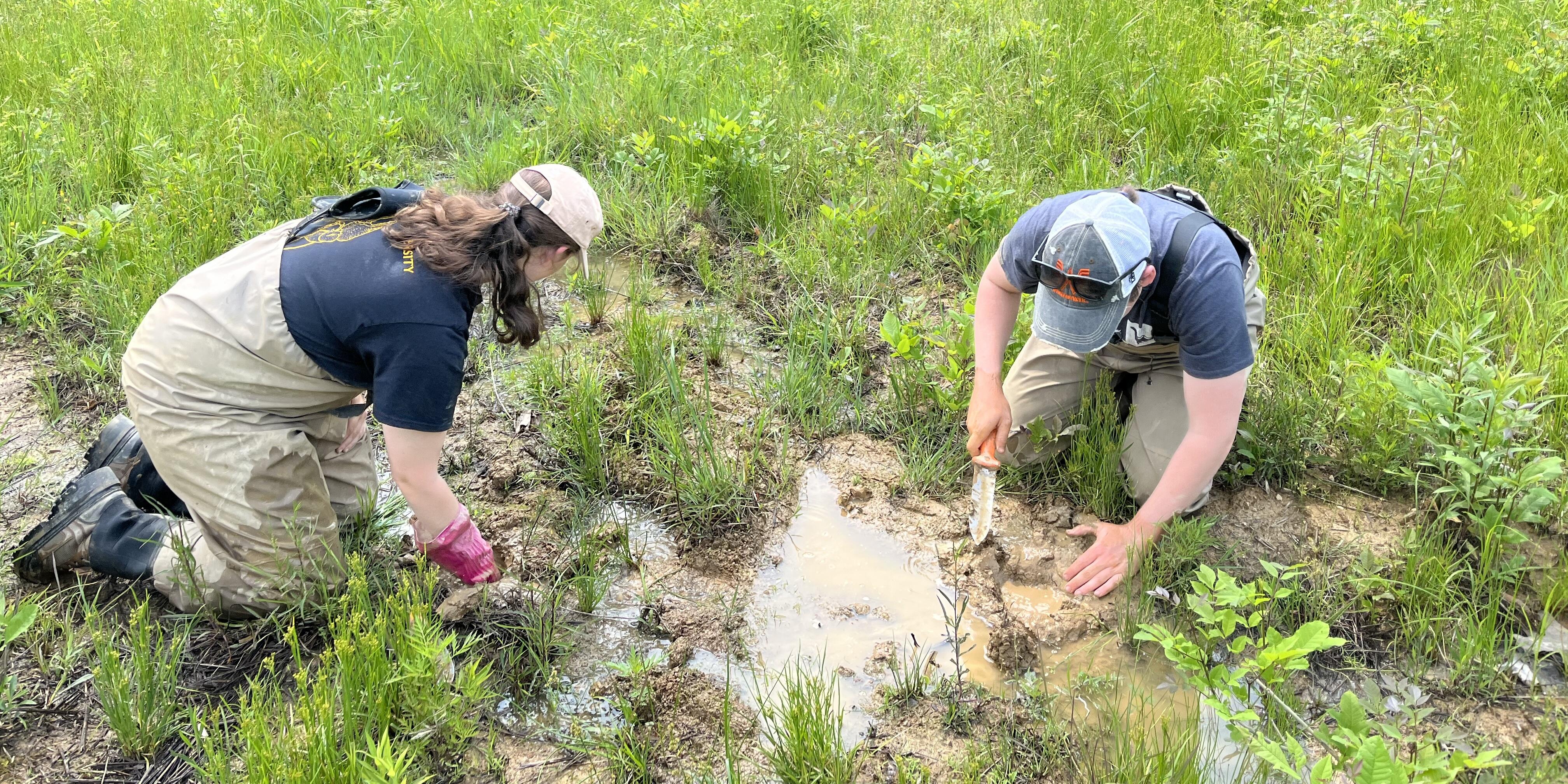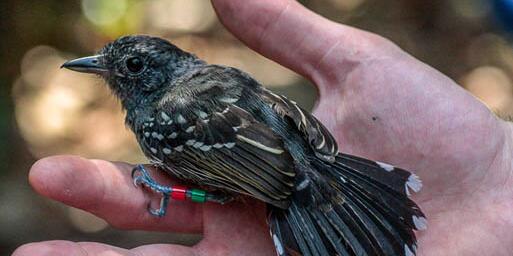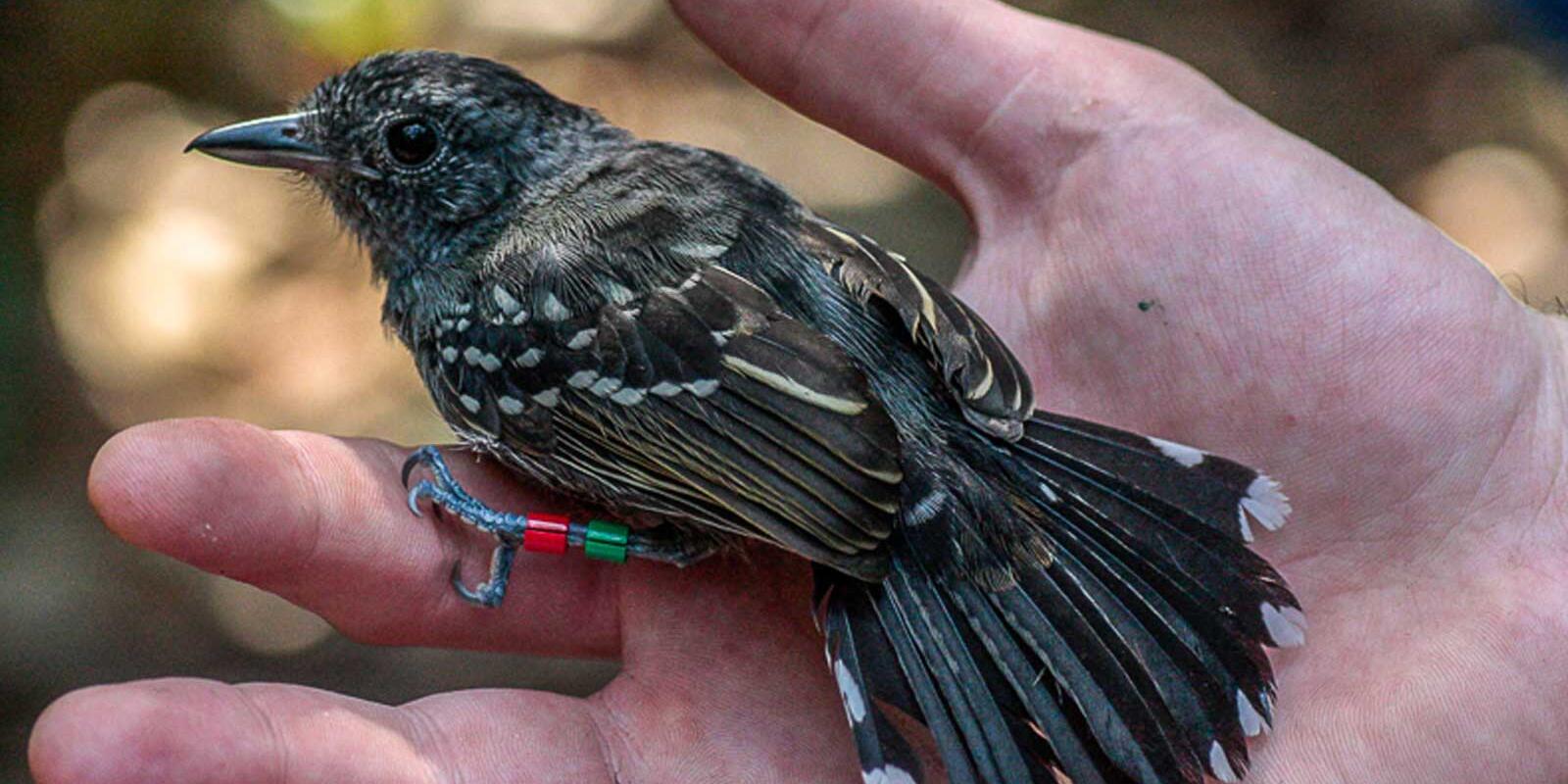Whether you’re into math or marketing, machinery or medicine, we give you the power to change the world. Find a program that aligns with your goals using our Program Explorer.
Explore different ACES majors to discover what fuels your passion.
Understand adult family roles, health issues, and social service needs.
Enhance your teaching skills beyond the undergraduate level and personalize the content area that is most applicable to each teacher’s course responsibilities.
This certificate is for early- to mid-career professionals aiming to enhance their expertise in agribusiness management, food production economics, and sustainability.
Learn the business side of the food and agricultural industries.
Master accounting skills to serve in agricultural businesses and accounting firms.
Learn economic theory and analytical research tools to address important social and economic challenges.
Become an expert in economic theory and analytical research tools.
Learn engineering principles to innovate food, agricultural, energy, and environmental systems.
Solve problems in agricultural production, utilization, environmental control, and biological systems.
Become an expert in the methods of research.
Put business and economics into action to solve real-world issues using economics, finance, marketing, quantitative methods, law, and policy.
Help people make balanced, informed decisions by mastering your communication skills.
Lead, educate, and train others interested in agriculture and the environment.
Advance your career as a professional educator.
Advance your career as a professional educator in an online program.
Focus on modern agricultural topics like how people work together and lead their peers, how to learn from and educate others, and how to communicate and report on agricultural issues.
Combine elements of the tourism and agriculture industries to help farms generate revenue.
Learn principles of plant, soil, and data management for productive, sustainable field crop systems.
Improve animal well-being, food animal production, and animal conservation efforts.
Earn undergraduate and graduate degrees on a shortened timeline.
Study applied animal, biomedical, and bioenergy sciences.
Study applied animal, biomedical, and bioenergy sciences.
For Animal Sciences majors interested in careers involving animal sheltering, control, advocacy, protection, and policy.
This certificate can provide skillsets in randomized design, spatial analysis, experimental design, regression analysis and multivariant.
This certificate will provide supplemental education to professionals seeking to obtain credentials in artificial intelligence and machine learning with agriculture applications.
This certificate will provide supplemental education to professionals seeking to obtain credentials in automation, robotics, and machine vision with agriculture applications.
Create new technologies that promote animal health and production.
Study computational techniques that guide biotechnology and medical research.
Integrate science and business related to the bioenergy life cycle.
Build a foundation of cannabis production skills.
Prepare yourself for work in community or clinical nutrition in public or private health organizations.
Take in-depth courses on various aspects of companion animal nutrition as a nonstudent.
Take in-depth courses on various aspects of companion animal nutrition.
Enhance the well-being of companion animals.
Pair tech skills and a love of animals to enhance animal health.
Revolutionize plant production systems using digital technology.
Gain an understanding of the role of the finances and behaviors of consumers in the marketplace.
Gain an understanding that every population has its own capabilities, needs, and values, all of which must be incorporated into technical design if it is to be functional and sustainable.
A certificate in Contextual Engineering demonstrates that students have been trained to think about user community needs when addressing technical needs, regardless of where that community is located or how different it is from the students’ own experiences.
Cultivate a significant background in crop and soil systems
Become a leader in feeding and fueling the world with sustainable innovations.
From bioinformatics to plant breeding, our graduate program offers diverse research areas where you can pursue your interests.
Strengthen your crop sciences skills and education through part-time study.
This online graduate certificate is for early- to mid-career professionals aiming to enhance their practical and theoretical knowledge in dairy nutrition and management, dairy livestock health and nutrition, and feed ration formulation for dietary and production needs.
This certificate will provide supplemental education to professionals seeking to obtain credentials data management and analysis methods and how to apply them to digital agriculture and life science questions.
Help people live healthier, happier lives through better food and nutrition.
This certificate will provide supplemental education to professionals seeking to obtain credentials in digital agriculture.
This program will help you develop an adaptable, innovative, and resilient entrepreneurial mindset.
Learn the application of engineering technology in agriculture and environmental systems.
Get the technical and management expertise needed for today’s global economy.
Merging technology with management in a systematic approach to problem-solving is the foundation of the Professional Science Master’s program in ETMAS.
Become an expert in environmental and resource management to influence policies that change the world.
Study the economic and legislative aspects of environmental issues.
Shape the future of food production and engage in the business of feeding the world.
Help agricultural businesses thrive with solid financial programs.
Advise individuals, households, and businesses in making prosperous financial decisions.
Grow your knowledge in the economics and management of agribusinesses.
Apply rigorous engineering principles to food, agricultural and biological materials in the manufacture of food, biochemicals and biofuels for industrial, human and animal uses.
Study the relationships between people, plants, animals and the environment.
This online graduate certificate is for early- to mid-career professionals who want to learn about the intricacies of US food regulations, nutritional policies, and the growing field of personalized nutrition.
Improve and develop safe, nutritious, delicious, and sustainable foods.
Learn managerial and leadership skills with a professional science master's degree.
Ensure the quantity, quality, variety, attractiveness, and safety of foods.
The Gateways Family Specialist Credential (FSC) is for professionals who provide direct services to families.
The Gateways Infant Toddler Credential (ITC) is for early care and education professionals who have experience working with children from birth to age three.
Improve food security in urban areas by studying fruit and vegetable crops.
Further your knowledge of fruits, vegetables, medicinal plants, and crops.
Further your knowledge of fruits, vegetables, medicinal plants, and crops.
Combine food-focused sciences with a passion for serving people.
Designed for students interested in expanding their knowledge and application of management principles, with a focus on the unique application in the field of hospitality.
Help children, families, and communities thrive.
Address issues faced by diverse children, youth, families, and communities.
Conduct research to determine how diet impacts human health.
Gain an understanding of dairy cattle biology, nutrition, and livestock farm management.
Help make workplaces safer, healthier, and happier.
A certificate in Industrial and Agricultural Safety and Health will provide a strong foundation for understanding safe practices, injury prevention, mental health, the psychology of unsafe behavior and effective safety measures.
Study global food, trade, agriculture, and environmental development.
Study agriculture, consumers, trade, and public policy in developing economies.
This certificate will provide supplemental education to professionals seeking to obtain credentials in cloud computing, machine vision, and IOT with agriculture applications.
Graduate students in the Law/NRES joint degree program will be offered the opportunity to achieve high scholarship in both law and science.
This online graduate certificate is for early- to mid-career professionals aiming to deepen their knowledge and expertise in alternative investments and financial planning.
Understand the social and organizational processes that influence effective leadership.
Develop leadership, communication, managerial, and cultural skills desired by employers.
Use digital technologies to make agricultural systems more efficient, resilient, and sustainable with this degree.
The Meat Science certificate is for students who are majoring in Animal Science or Food Science and plan a career in the meat or food industry.
Choose a specific area of conservation that interests you.
Develop expertise in natural resource sustainable practices.
Shape a more sustainable future for wildlife & plants, ecosystems, people, soil & water, and agriculture.
Tailor your program to suit your interests in environmental studies.
Tailor this online program to suit your interests in environmental studies.
Develop an expertise in environmental and preservation practices.
Core courses will train students in advanced microeconomics and econometrics, and additional quantitative tools such as data science and system optimization.
Take a holistic approach to understanding relationships between people and food.
Take a holistic approach to understanding relationships between people and food.
Integrate interdisciplinary graduate education with key research.
Develop your skills to hold faculty positions or continue research endeavors.
Learn how to empower consumers through leadership, education, and communication.
Learn personal finance basics, gain confidence, and prepare for real-life financial decisions after college.
Learn cutting-edge plant science to develop nutritious, sustainable crops of the future.
Use economics to evaluate policy responses to the challenges of development, climate, and trade.
Applying knowledge of food and nutrition to improve and maintain good health.
Become an expert on agricultural and environmental law and public policy.
Solve soil-related issues for land conservation and environmental sustainability in an online program.
Apply spatial and quantitative methods to environmental decision-making.
Engage in critical conversations that have global impacts on climate change, natural resources, or food production systems.
This degree prepares students from all backgrounds for a career protecting the environment and improving access to healthy food.
Apply, manage, and market engineering technology systems.
Become an expert in water quality, control, and treatment issues.
This online graduate certificate is for current and aspiring conservation professionals who want to study and practice wetland conservation.
Immerse yourself in the intersection of environmental issues and human affairs, and discover how this intersection creates "wicked problems" without easy solutions.
Broaden your expertise in biodiversity conservation, endangered species, wild animal management, and natural habitats.
Get additional instruction related to the management and conservation of undomesticated animals



















